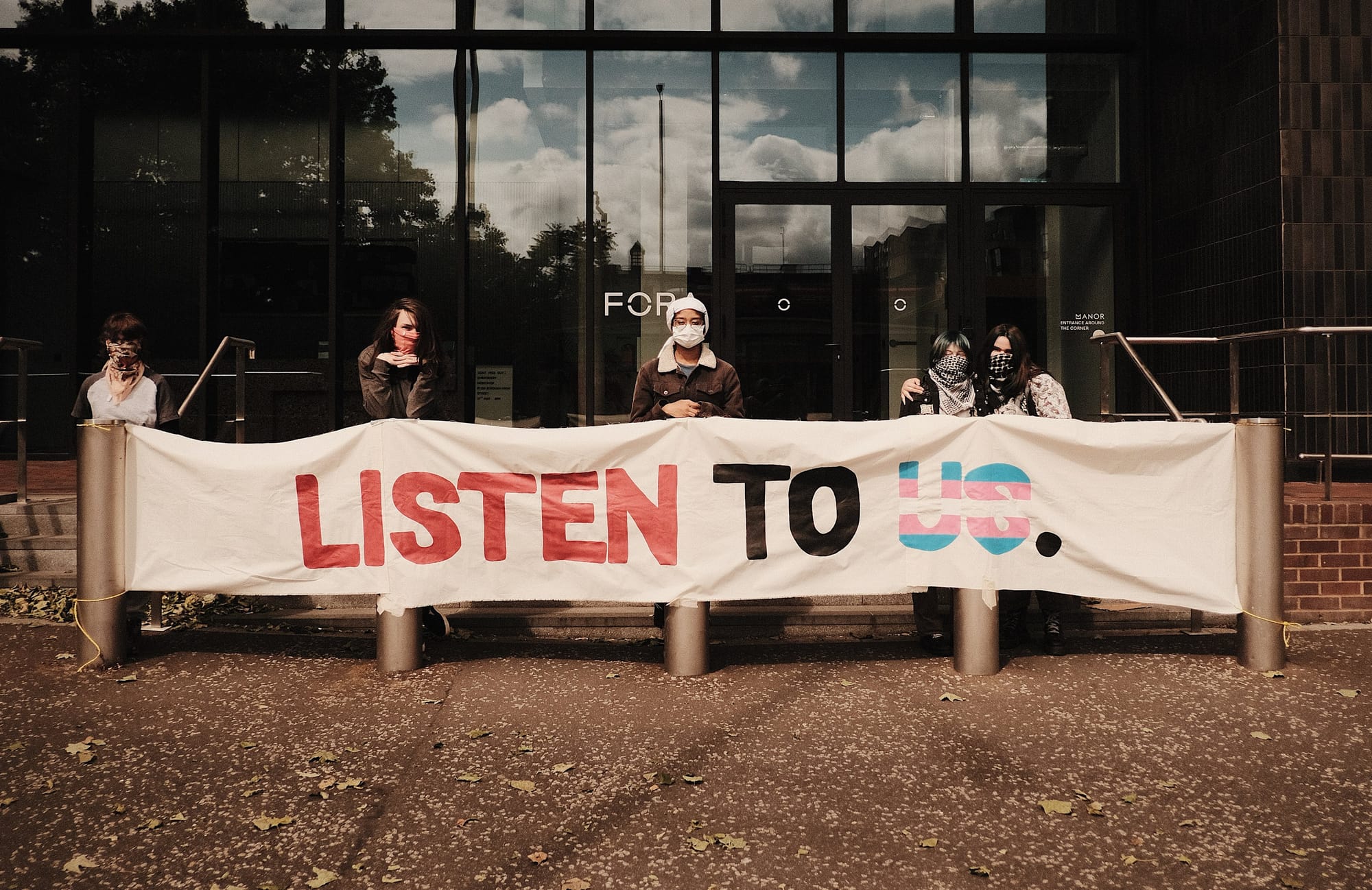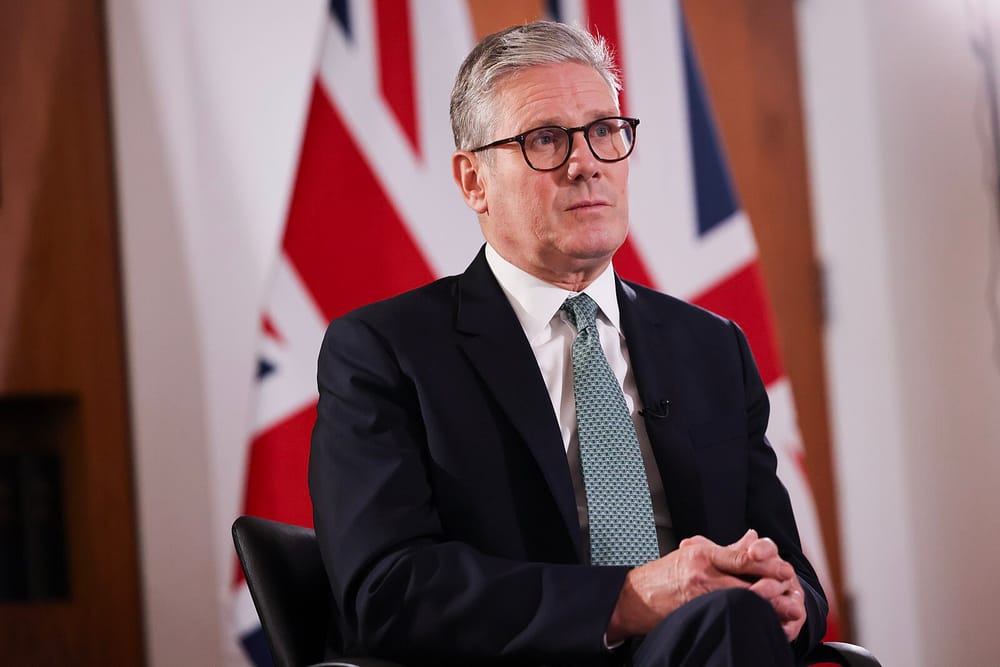The youth shall see visions
Good thing they know that direct action, not just a vote, brings visions about.

Almost 9 years ago to the day, I turned 18. Just 23 days too late to vote in the Brexit referendum. I remember that my best friend let me decide her vote, promising to represent me in our democracy. Meanwhile, my grandparents surveyed the grandchildren to guide their ageing (and so, in their minds, expiring) votes. I was outnumbered and furious as two cousins, who had their own vote, added two more to “leave” by pulling on generationally traumatised heart strings with some rancid assimilationist racist bullshit.
I was already disillusioned by electoral politics and the idea that after all the groundwork (lies, disinformation) to influence the results, it could still claim to be “representative” of a public desire to leave the European Union. I did not need to wait to be 18 to see and feel and witness beside me the life-threatening fractures in the democratic system. I had already felt the hands of the state, of the police, in ways I could and could not yet name. And I had already read about, heard, and seen the devastating violence of those hands on the lives of those around me. Those hands holding up the very democracy we lived in.
This week's announcement that the voting age in England will be lowered to include 16 and 17 year-olds is significant, yes, but also long overdue and not particularly earth-shattering. England is simply catching up with Scotland and Wales, and following after numerous other democracies (including Australia, Austria, Canada, Cuba, Brazil, Malta and New Zealand) in affording suffrage below 18.
However, it should be revolting to us all when the logic deployed to explain this lowered age reasons their entitlement to vote as because many of them “already work” or are “eligible to serve in the armed forces”. Writing for the Guardian, Rowena Mason contends that lowering the voting age is "an issue of fairness”. As if the threshold for democratic value and participation is directly related to one's contribution to the workforce or to national service via the armed forces, over, I don’t know, constituting an over-one-million-strong section of the cognisant political base.
In a baffling framing of the decision, Prime Minister Keir Starmer proclaimed : “If you pay in, you should have the opportunity to say how your money should be spent”. This is leveled as a logic of “increasing democratic participation” in which “all young people should have a say in the country’s future”; as opposed to an exchange of money and labour vis-à-vis taxation, for the right to be represented. In the kindest words possible (which is generous to a group of authoritarians in fancy dress), it sounds like the Labour party trying to save face and actually deliver on one thing they promised. In other skeptical words, it seems like a timely last-ditch effort to rustle up the support of more potentially left-wing voters as Reform threatens to win local elections around the country. As if those same 16 and 17 year-olds haven’t been watching Labour’s shit show along with the rest of us.
Herein lies the most insulting omission. It is as if those newly honoured with suffrage are not direct subjects of the state that (often violently) governs their lives, their education, their liberty, and their bodies, without being able to vote for it, and haven't been for their whole lives.
It is not the case that up until this tardy extension of participation, young people have not been intervening to have their voices heard. In lieu of, or indeed, knowingly outside of, this ability to vote, coalitions of young people have been engaging directly in the conditions and policies in which they must live.
From Trans Kids Deserve Better staging regular and acute actions for access to healthcare (read: to live), to school-wide mobilisations against racist uniform policy and curriculum changes. These are but some of the headline-marked actions in a swarm of youth organising for the climate and against the UK’s complicity in genocide, seeing young people, including those below the voting age, taking issues of deep moral and physical significance to them, into their own hands and with effect. To narrate their coming of "fair" age to have a say in their country’s running upon turning 16 or upon beginning work (which happens far younger than 16 too) is, in light of such action, quite frankly, embarrassing.
‘The old shall dream dreams and the youth shall see visions’, reads a now popularly recited paraphrase of Joel 3:6. It begs not much explanation. Its sentiment underlies why my grandparents and many in their generation attempted to defer to younger people when casting their vote in the EU referendum. But, in considering the efficacy of young people's direct action, it sings anew.
83 year olds invite arrest, understood to have assessed that at their age, or in their condition, there is perhaps no more meaningful purpose to apply themselves to with the time they have left. The consequences are few or no longer intimidating. Meanwhile, there are young people who are willing to risk their liberties and their health for what they know to be just. We must not be surprised or patronise them. An 83 year old has nothing left to lose; a 16 year old has absolutely and desperately, everything to.
In the wake of one of the most severe crackdowns on true civil liberties, young people taking direct action across all causes have shown that civic participation is a way to be counted but not, anymore, enough to be heard.
May we stand by them, and protect them, whilst they sleep outside in demonstration. May we spot them from below as they climb buildings to fly banners. May we march behind them, and respond full-voiced, screaming, when they chant. When we ask what they did at school today and they shrug, and we see them in the news sitting cross-legged, front row in the crowd of uniforms, in protest on the playground, may we be not just proud, but reminded of what we too are fighting for. They have known, for so long already, what feels right and what feels wrong. What they intuit we have too often been made to forget. Being given the vote will not make them docile; we ought to rise up from our compliant slumber too. ▼
Asha Sumroy is an interdisciplinary writer and filmmaker and an Editor at Vashti.
Author

Asha is an interdisciplinary writer and filmmaker and an Editor at Vashti.
Sign up for The Pickle and New, From Vashti.
Stay up to date with Vashti.



